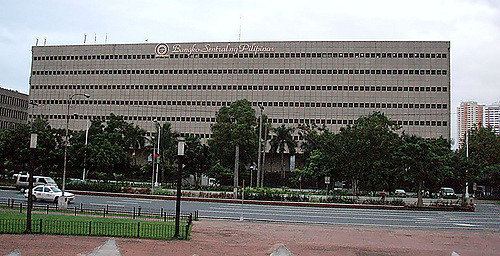
MANILA — The Bangko Sentral ng Pilipinas’ (BSP) policy-making Monetary Board (MB) on Thursday maintained anew the central bank’s key rates after noting that inflation environment remains broadly unchanged.
The rate of the reverse repurchase (RRP) facility is still at 3 percent, the repurchase (RP) rate is at 3.5 percent, and special deposit account (SDA) rate is 2.5 percent.
In a briefing, BSP Deputy Governor Diwa Guinigundo, after reading the Governor’s statement, said the latest baseline inflation outlook points to a level that is within the government’s 2 to 4 percent inflation target for 2017-19.
This, even as price movement of oil in the international market remains an upside risk on the domestic rate of price increases.
Guinigundo said based on their study, even as the price of oil in the international market reaches around USD60 a barrel, this “will not be enough to offset the target.”
The Board also kept the BSP’s 3.2 percent, 3.4 percent, and 3.2 percent average inflation projection for this year until 2019.
With regards to the impact of the proposed tax reforms, the central bank official said that “while there may be potential transitory effects on consumer prices from the proposed tax reform program, various mitigation measures and the resulting improvement in output and productivity are also expected to temper the impact on inflation over the medium term.”
Guinigundo said uncertainty remains on what would be final in the proposed tax reforms since there have been some changes based on what lawmakers have approved and what the Department of Finance (DOF) has proposed.
“At this point, it is very premature for us to talk about implications of the tax reform,” he said but stressed that reforms in the country’s tax system are “necessary to allow the national government to undertake those infrastructure projects,” he said.
The Duterte administration has proposed changes in the country’s tax system due in part to fund its massive infrastructure program eyed to further lift domestic growth and expand its potential output.
Guinigundo also cited the looming reforms in the rice industry, in line with the proposed use of tariffs in lieu of quantitative restrictions as well as the deregulation of rice imports as a downside risk to inflation.
Other plus factors for the Board’s decision to keep rates steady include the geopolitical concerns overseas as well as uncertainty on macroeconomic policies abroad, he said.
Meanwhile, Thursday’s hike in the Federal Reserve rates by 25 basis points to 1.25-1.5 percent, the third for this year, is no reason for the MB to do the same, Guinigundo said.
He said the Board’s decision has assumed the possible hike in Fed rates this week and three more hikes in 2018.
He, on the other hand, pointed out that the BSP does not need to mirror the Fed decision given the robust growth of the domestic economy and sustained improvement of fundamentals.
“We do not have to ease monetary policy because growth continues to be robust. The momentum of economic growth in the Philippines remains and therefore there’s no need to stimulate economic activities by easing monetary policy,” he added.
Guinigundo added that concerns on the supposed overheating of the domestic economy due to strong credit growth are “misplaced.”
“Inflation is still very stable despite the 20 percent and up credit growth,” he said.
BSP data show that growth of bank lending, excluding banks’ placements with central bank’s RRP facility, rose by 19.9 percent last October from month-ago’s 21.1 percent. It has been posting high growth and analysts have said that this is a sign of overheating, which monetary officials continue to discount.
Amid keeping the rates steady, Guinigundo said “the Monetary Board emphasized that prospects for domestic economic activity are likely to remain firm owing to buoyant consumer and business sentiment and ample liquidity. Moreover, as credit continues to expand in line with output growth, the Monetary Board remains watchful over evolving liquidity and credit conditions and their implications for price and financial stability.”
He added that BSP officials “will remain vigilant against any risks to the inflation outlook and will adjust its policy settings as needed to ensure that future inflation remains consistent with the medium-term target while being supportive of sustainable economic growth.” (PNA)